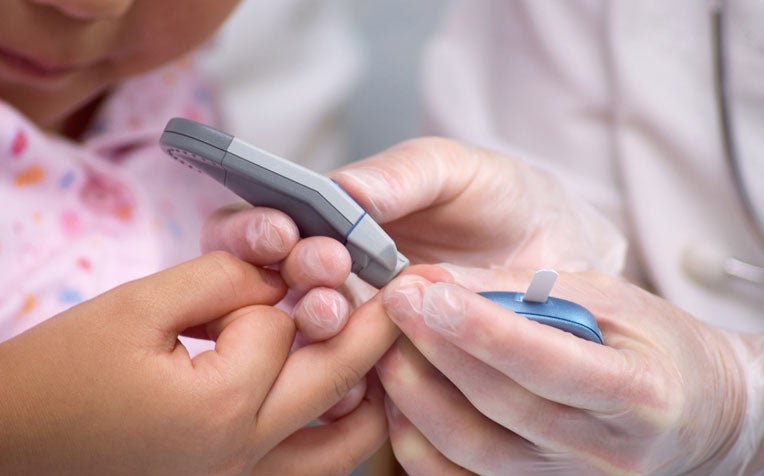HealthXchange will NEVER ask you to transfer money over a call. If in doubt, call the 24/7 ScamShield helpline at 1799, or visit the ScamShield website at www.scamshield.gov.sg.
Health Checklist for Type 1 Diabetes

Type 1 diabetes is a lifelong condition.
"Type 1 diabetes is a lifelong condition, knowing how to monitor your health and look after yourself holistically helps to keep you in check and minimise future complications,” says Dr Daphne Su-Lyn Gardner, Senior Consultant from the Department of Endocrinology at Singapore General Hospital (SGH), a member of the SingHealth group.
Having the right care is crucial for all individuals with diabetes. Here are some essential checks and services you should receive or prioritise when you have type 1 diabetes:
- Get your blood glucose levels measured.
This is known as HbA1c and should be done at least annually, preferably every 3 to 4 months. The HbA1c measures your overall glucose control over the preceding three months and helps you and your diabetes healthcare team to set your own target.
In addition, performing regular self-monitoring of capillary blood glucose levels will allow you to observe your glucose levels daily and manage your insulin dose titrations well. -
Have your blood pressure measured and recorded at least once a year.
Know your personal target. -
Have your blood fat profile (cholesterol and triglycerides) measured at least every year.
-
Have your eyes, kidneys, legs and feet checked.
Please refer to the section on diabetes complications and annual screening. -
Get individual, ongoing dietary advice.
Counting carbohydrates is an important part of ongoing self-management and insulin dose titration.
In addition you should have ongoing support and information you need to manage your weight, and to maintain a healthy, balanced diet. -
Get emotional and psychological support.
Living with a long-term condition can be difficult. Don't be afraid to talk about your issues and concerns with your specialist healthcare team. -
See diabetes healthcare professionals.
Managing type 1 diabetes is complex and requires input from various healthcare team members, including the diabetes physician, diabetes nurse educator, and dietitian. -
If you smoke, get support and advice on how to quit.
Diabetes itself increases your risk of heart disease and stroke, and smoking further increases this risk. -
If you have type 1 diabetes and are planning to have a baby, get guidance and specialist care on planning for a healthy pregnancy.
Some medications may need to be stopped or changed prior to pregnancy. Your diabetes control has to be a lot tighter before and during pregnancy, and you will need to be monitored closely throughout pregnancy.
For more information on
what is type 1 diabetes and the
guide for self-management, see previous pages.
WE WANT TO HEAR FROM YOU!
Do you have Type 1 diabetes (and are above 21-years-old) or have a child with Type 1 diabetes?
Hit this link to take part in the Type 1 Diabetes Technology Survey, conducted by Singapore General Hospital (SGH). Help us to understand the level of awareness and satisfaction with diabetes-related technology in Singapore.
Ref: O17
Contributed by
Related Articles
Conditions & Treatments
Public Events
Get the Health Buddy App
© 2025 SingHealth Group. All Rights Reserved.


















 Get it on Google Play
Get it on Google Play